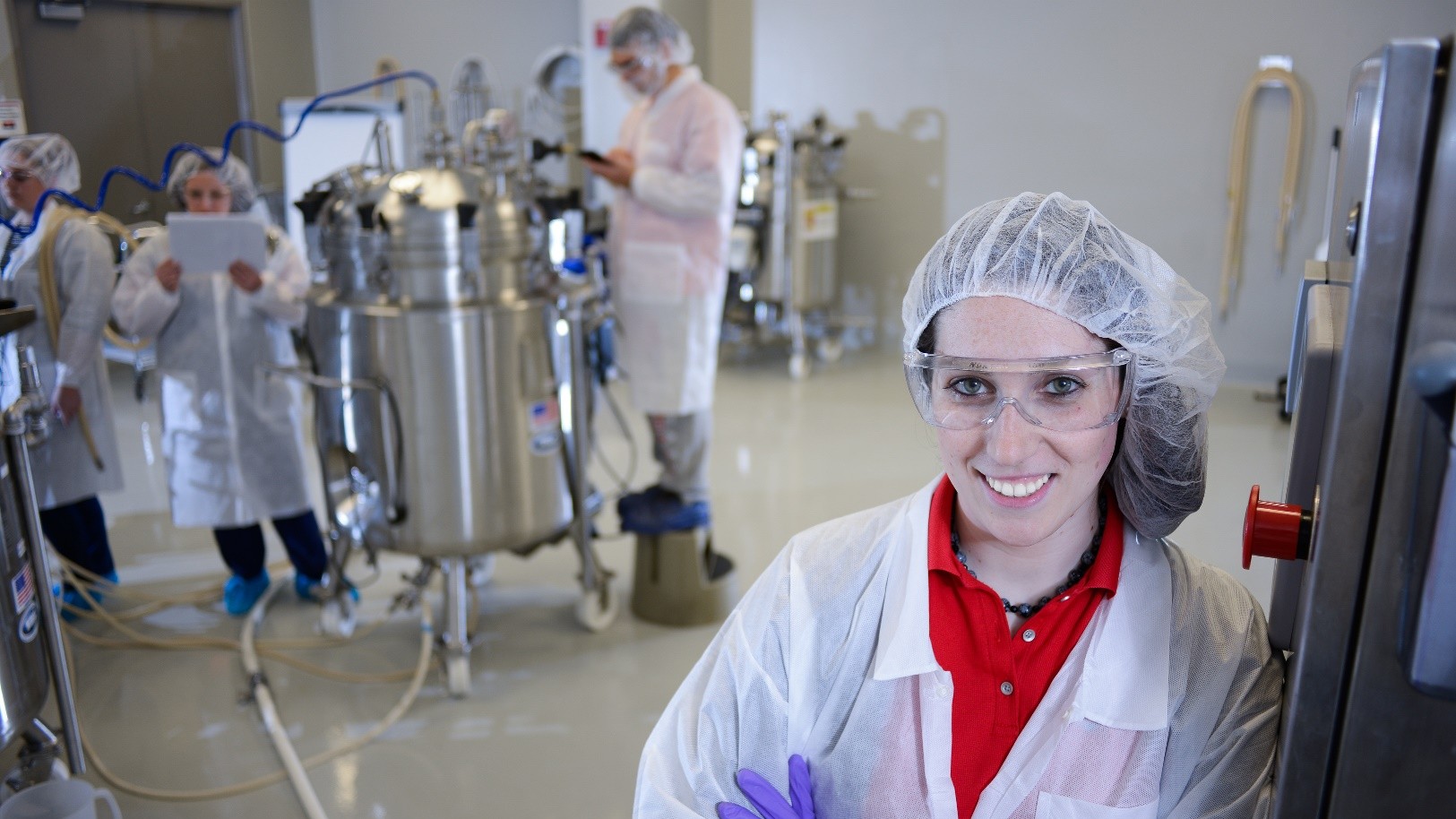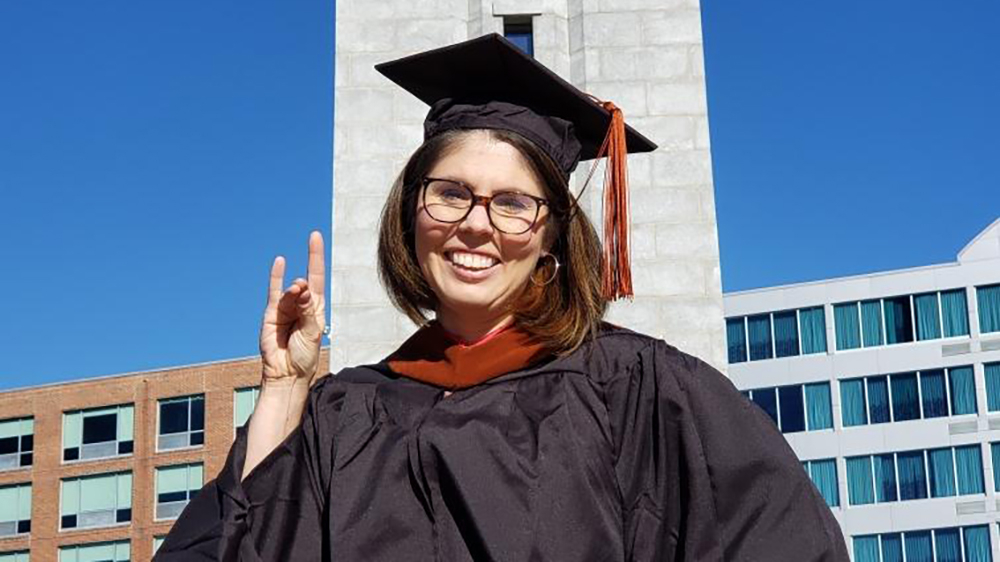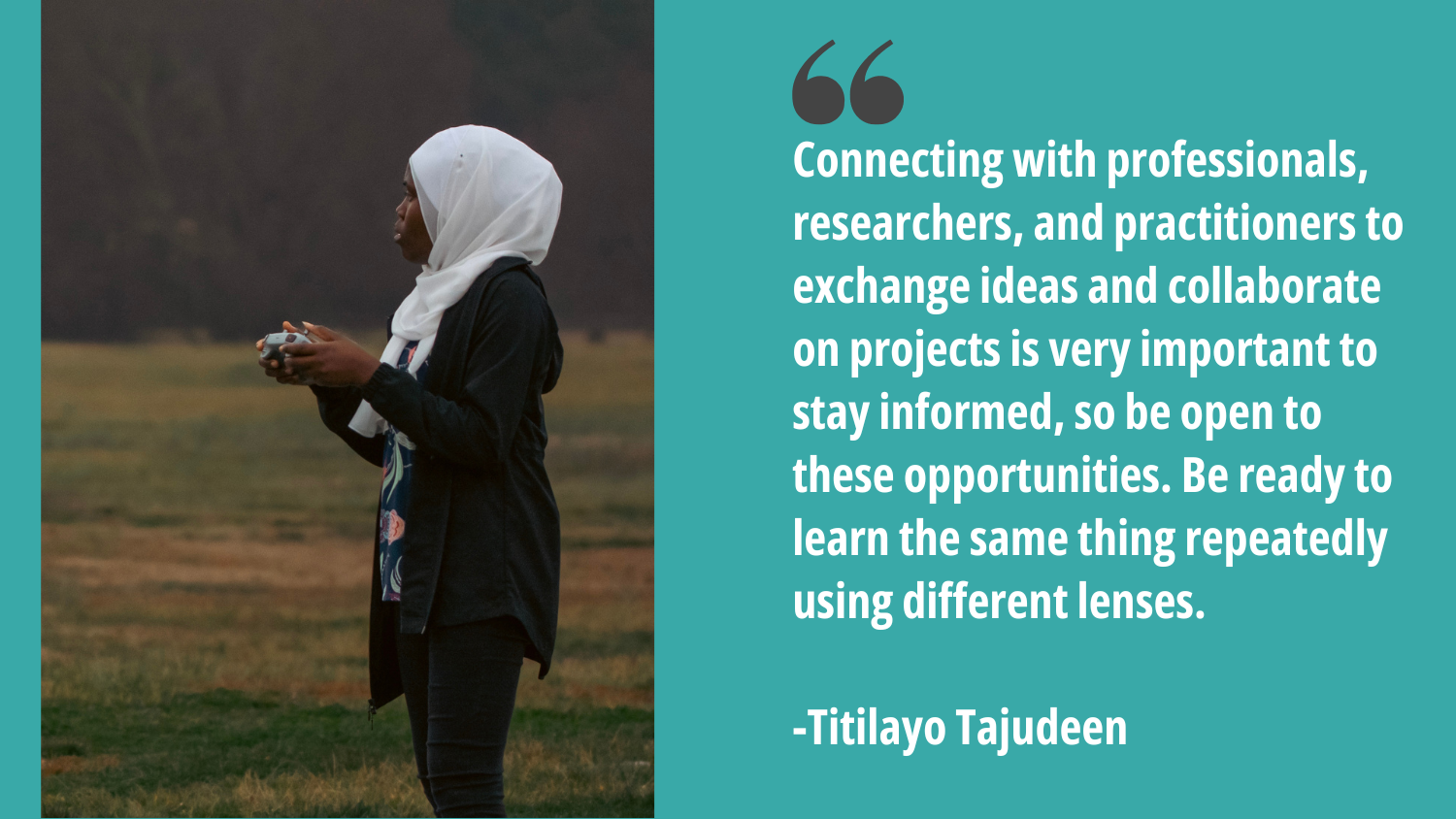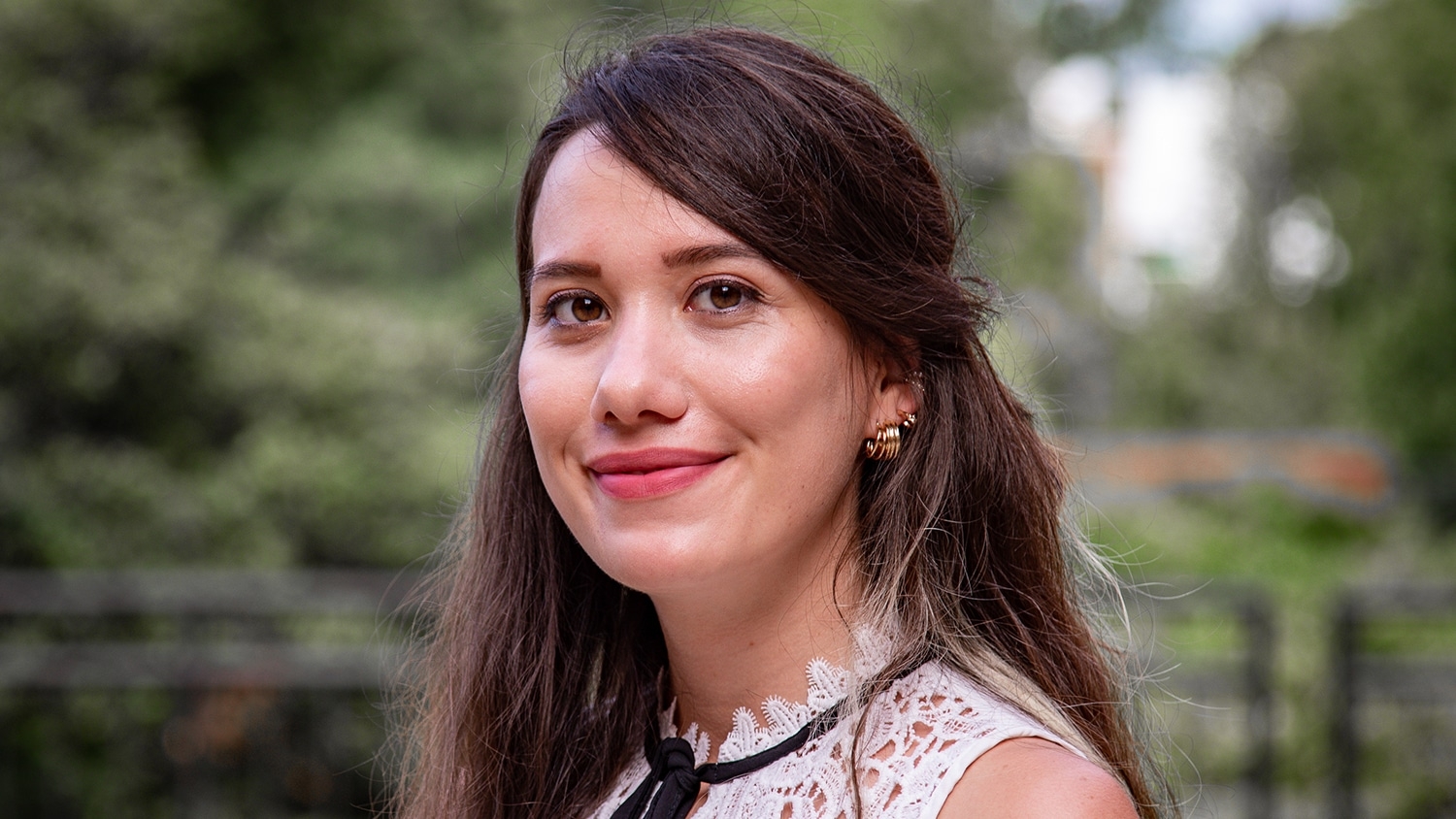Amanda Walter Explains Benefits of Biosimilar Drugs

Helping North Carolinians Navigate the Economics of Wellness
Drug terms like generic and biosimilar can be confusing. Graduate student Amanda Walter, who works in the pharmaceutical industry, recently spoke directly to policy and lawmakers and jumped at the opportunity to help clarify and parse out the terms for people in a position to enact the laws that govern them.
Although the science behind a biosimilar drug versus a name brand drug may not be transparent to all, the economics are clear. Biosimilar drugs, as Walter explains, “can cost one third less than the cost of name brand drugs.” That savings can determine whether or not a patient can afford to remain compliant with a drug therapy.
Walter, 27, has spent the last few years working and studying full time as an aspiring researcher and scientist. Her father was a pharmacist in the health care industry, and he insisted that she could do anything in life. “My father and I were very similar,” she says. Her father took her to lectures at the New York Academy of Sciences, where he was a member.
She had support at home and in school for her dreams to become a scientist. Walter’s mother works in the field of radiology and ultrasound. “I was raised, ‘You can do anything you put your mind to!’” Walter says.
She found that her role as a graduate student lent her scientific credibility and eventual access to the very people who determined whether or not pharmaceutical companies can sell biosimilar drugs.
“The legislators that I had the pleasure of speaking with were all very interested in how biosimilars could benefit their districts and the state of North Carolina as a whole. The most memorable interaction I had was my conversation with Senator Paul Lowe Jr.” says Walter.
“After I had introduced myself, I told him about our case study of biosimilars,” she said. “He proceeded to express his concern regarding patient access and affordable patient care, noting that many of his district’s constituents suffer from terrible health issues, but have a difficult time affording the medications required for treatment.”
While Lowe’s concern was pointed, the opportunity it provided to make the most of their interaction was pivotal for Walter. And she was ready, having spent the past three years in the realm of drug investigations.
“He then asked me, ‘Do you think biosimilars can make a difference for these individuals?’ I felt a huge responsibility in that moment. I spoke plainly and openly about how biosimilars offer a good opportunity to increase patient access; however, the degree of their success will be determined by many factors, including regulatory and legislative pathways. He continued to say that he was a supporter of the biosimilars bill that had been recently passed (House Bill 195), and he thanked me for our (my team’s) work. I was very touched, because he was genuinely concerned for patients, and he seemed to have appreciated our conversation,” Walter says.

As Walter said later, the exchange between lawmaker and scientist felt like a victory. The evidence points to the fact that biosimilars and biogenerics can perform as well as costlier name drugs.
“The Biomanufacturing Training and Education Center (BTEC) program at NC State has allowed me to utilize the principles I learned in undergrad and apply them in a real world setting,” she says.
At NC State, Walter worked on a case study to evaluate a biosimilar monoclonal antibody. The antibody was similar to a name brand drug at a fraction of the cost. Walter, a New York City native, accepted a new job in July at Merck in Durham, while she completes her Professional Science Master’s degree in biomanufacturing.
Since entering NC State in 2013, she has also worked at Hospira, where she conducted complaint investigations, worked on test protocols and addressed compliance risks and gaps as a compliance specialist. In her roles as a laboratory analyst, Walter worked on test protocols. She has worked as a lab technician at NC State, the University of Massachusetts Amherst and at a National Oceanic and Atmospheric Administration marine laboratory in Beaufort.
For someone with a background such as hers in biology with an interest in biotech, says Walter, “NC State helped bridge the gap between biology and biotech. BTEC produces graduates who are ready to enter the biomanufacturing industry.”
The NC State’s BTEC graduate program directly affected her career within the pharmaceutical industry, says Walter. With a background in biology, Walter says her undergraduate focus was more on the principles of the scientific method and the underlying principles of biology, chemistry and physics.
As an undergraduate, she had found herself frightened of certain courses, even though she was interested in complex analysis. BTEC offered a bridge.
“While we often applied technology as part of learning and studying these topics, understanding how the technology worked wasn’t always emphasized. I found myself often questioning how the technology was developed, which I now realize is more of an ‘engineering’ mindset,” Walter says.
“Truth be told, I was scared of complex math, so I avoided engineering, thinking that I wouldn’t be suited for the field. But as I learned more, I came to discover that it more aligned with my interests in biotechnology and its applications. The BTEC program allowed me to utilize the principles I learned in undergrad and apply them in a real-world setting,” she says.
She adds that the program also fed her curiosity about biotechnology, leading her to find her niche in biomanufacturing.
Today, her new role at Merck is in engineering, a job she was recruited for as a result of the research experience on her personal LinkedIn page.
“It is immensely gratifying to be part of a team that helps manufacture products that ensure the health and wellness of patients around the world. Furthermore, studying at NC State, and working within the RTP area has energized me to achieve my long-term career goal: being part of team that develops the next therapeutically significant biologic.”
Walter credits the Professional Science Master’s degree with providing a technical base to understand scientific and engineering principles in her daily work life. It also contributed skills such as collaboration and communication, which help her succeed as part of a professional team.
“I firmly believe my time at BTEC has made me a strong competitor within in the workforce pool,” she says
Walter is on track to complete her course work this December and will attend NC State’s graduation ceremonies in May 2016. “It’s an exciting time to come to North Carolina and NC State.”
For more information on House Bill 195, see through the NC General Assembly website: http://www.ncleg.net/gascripts/BillLookUp/BillLookUp.pl?Session=2015&BillID=h195
What you should know about Biosimilars
by Cynthia Adams
- Biosimilars are therapeutic proteins that provide the same efficacy and safety as a reference (innovator) biological medicine that is already on the market.
- Unlike small molecule drugs that are chemically synthesized (aspirin, ibuprofen), biological products are proteins produced in living biological systems (e.g. cells).
- Biosimilars are not “bio-generics” as they are not identical in composition or structure to their on-market reference drug like a small molecule generic is; however, biosimilars may be allowed to function like generics in some ways such as substitution at the pharmacy level.
- Since biologics are produced in living systems, they are complex and costly to both develop and manufacture. As biosimilars are modeled after the innovative biologic, companies do not have to invest large amounts of capital and time into the discovery or research development phase of drug development. As such, biosimilars are projected to provide a 20-30 percent reduction in cost per dose. This reduction in cost creates an exciting opportunity for biosimilars to provide more affordable care and increased patient access.
- In March 2015, the FDA approved the first biosimilar for market within the United States. Zarxio (TM) (Sandoz, Inc.), a biosimilar to Amgen Inc.’s Neupogen (filgratim), is used to reduce the chance of infection within immunocompromised patients with low white blood cell counts, such as chemotherapy patients.
- Categories:


